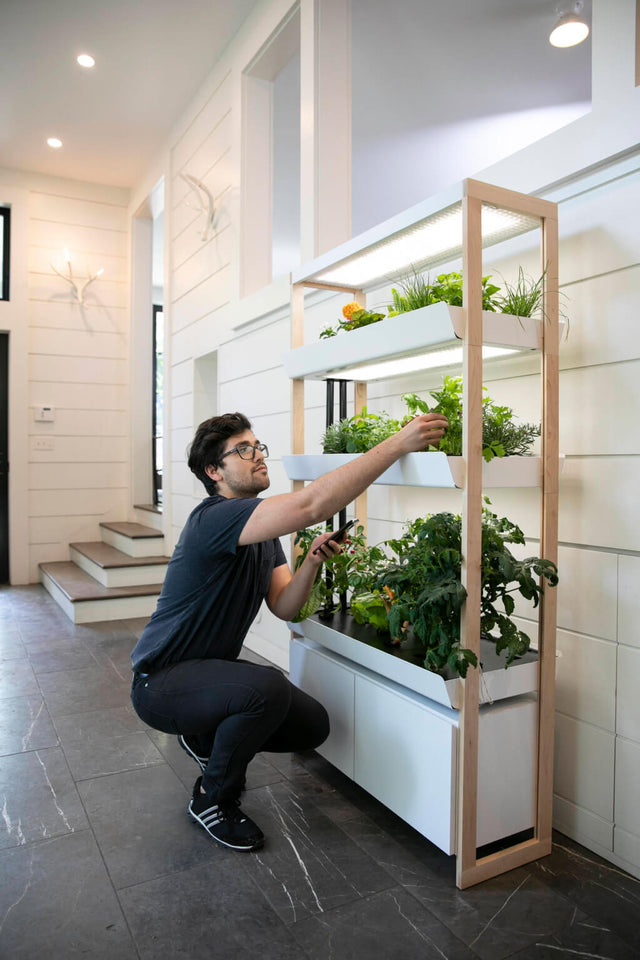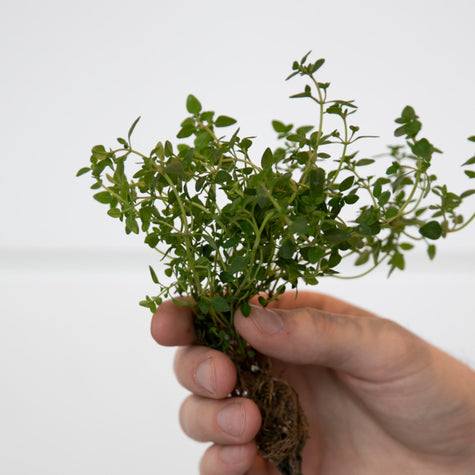There are a lot of questions when it comes to hydroponic gardening and technology. First of all, you might be new to hydroponics and wonder what it is. Hydroponics is the process of growing plants without soil. They plant roots are suspended in a combination of water and liquid nutrient solution instead of growing downward into dirt. This indoor gardening solution makes it easy to grow your own food without having access to land.
We built our smart gardens with hydroponic technology, which we find to yield the best results. In fact, we’ve found that our plants grow exponentially quicker and larger while retaining amazing flavor.
To get you started with the basics, our plant scientist, Angelo Kelvakis, has cultivated his top five tips for beginner hydroponic gardeners.

- How often do I need to water my plants? For most hydroponics systems you want to keep them topped off because you do not want the nutrients to concentrate and create a toxic buildup in your water. For most systems you want to only use cold tap water because with enclosures and lights, your garden can run hot. It is always smart to check your tap water for hardness because extremely hard tap water can cause your nutrients to become inactive and create buildup. Using a water softener can help with this, or you may find yourself using more nutrients than you need.
- How much light do my plants need? Most indoor hydroponics systems come with lights but your plants will always be helped by giving them extra sunlight. It is always a good idea to check the PAR values given by the manufacturer. You should be getting multi spectrum light (Red and Blue) and at 6-8” from the light you want a PAR of 300-400 if you want to grow tomatoes or peppers, and 150-250 if you are growing lettuce or herbs.
-
Does temperature matter? Temperature can be important for germination where high temperatures can limit the germination rate, which is why it’s important to always use cold tap water. You can also add ice cubes to your system when adding water to keep temperature low. The reverse can be said as well: too cold of temperatures can stunt growth and germination. The ideal temperature range is 50-80º Fahrenheit.
The weather outside matters as well. However, you do not need to worry as much about this for hydroponics because your system actively humidifies the room and the water acts as a thermal mass, keeping root temperatures consistent. - How and when do I fertilize my plants? Most high-quality indoor gardens come with apps that will help you calculate nutrient additions. Otherwise, check the bottle on your nutrient bottles for feed rates.
- When should I transplant or “Pot Up” my plants? Most plants can be tightly packed as they grow, but make sure to space them out when they are older. For lettuce, a good rule of thumb is to space them 6” apart from center to center. You may deal with light blockage as larger plants like tomato, kale, and peppers, grow above other plants.
If you are interested in getting started and learning more about our gardens, learn more about them at risegardens.com
For more interesting tips and tricks, check out our blogs



